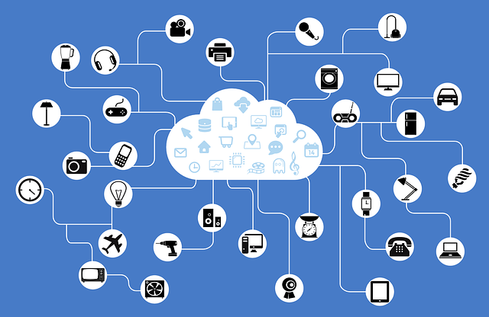Google's Fuchsia OS Points To IoT Intentions
It's possible Fuchsia is nothing more than an experiment by Google, one of the many technological inquiries the company is famous for conducting. It's equally possible that Fuchsia marks the direction Google will take in creating operating systems and control software for the internet of things (IoT).


10 IoT Security Best Practices For IT Pros
10 IoT Security Best Practices For IT Pros (Click image for larger view and slideshow.)
Details about the new Google Fuschsia operating system are tantalizingly slim, but it appears the company may be setting its sights on the internet of things (IoT). The new code, created using the Dart programming language, isn't related to either Android or Chrome, Google's existing operating systems.
If you go to the project's github page, the description reads: "Pink + Purple == Fuchsia (a new Operating System)." Fuchsia is based on a different kernel than Android. At its heart of hearts, Android is Linux. Fuchsia, on the other hand, is Magenta, which is built on littlekernel.
[The OS for the IoT needs strong security. Read Google Adds New Kernel-Level Protections For Android .]
Why does this matter? Android is a small-device operating system built on the basis of a big-system OS kernel. Fuchsia is a small-device operating system built on a small-device OS kernel. This matters when it comes to the kind of operations (and timing) common in embedded systems control needed for IoT. It's also not where the Magenta story ends.
There are a number of operating systems on the market designed for embedded systems control. The entire stack from which Fuchsia is derived is open source, but it's also designed to be very highly scalable. This means Fuchsia could eventually scale up to run smartphones, tablets, and even laptop computers on the same foundation being used to run thermostats and heart-rate monitors.
Discussions about whether or not it's best to scale an operating system up or down to meet new needs can quickly veer into religious territory. What's important to know about Fuchsia right now is that Google is at least experimenting with an operating system which is neither Android nor Chrome.
It's possible Fuchsia is nothing more than an experiment by Google, one of the many technological inquiries the company is famous for conducting. It's equally possible that Fuchsia marks the direction Google will take in creating operating systems and control software for IoT.
Either way, IT professionals who want to be prepared for IoT in Google's universe need to start spending the time to learn Dart, the programming language Google has used to create Fuchsia (which it uses for many other projects as well).
Fuchsia -- whatever it's destined to be -- is now in the open, giving IoT watchers one more thing to keep up with as they work to understand the direction in which the tiniest intelligent devices will evolve.
About the Author(s)
You May Also Like






